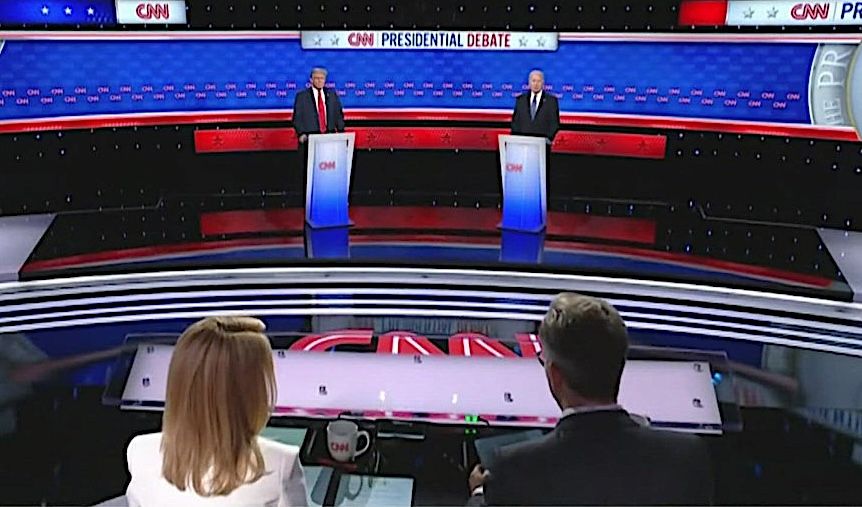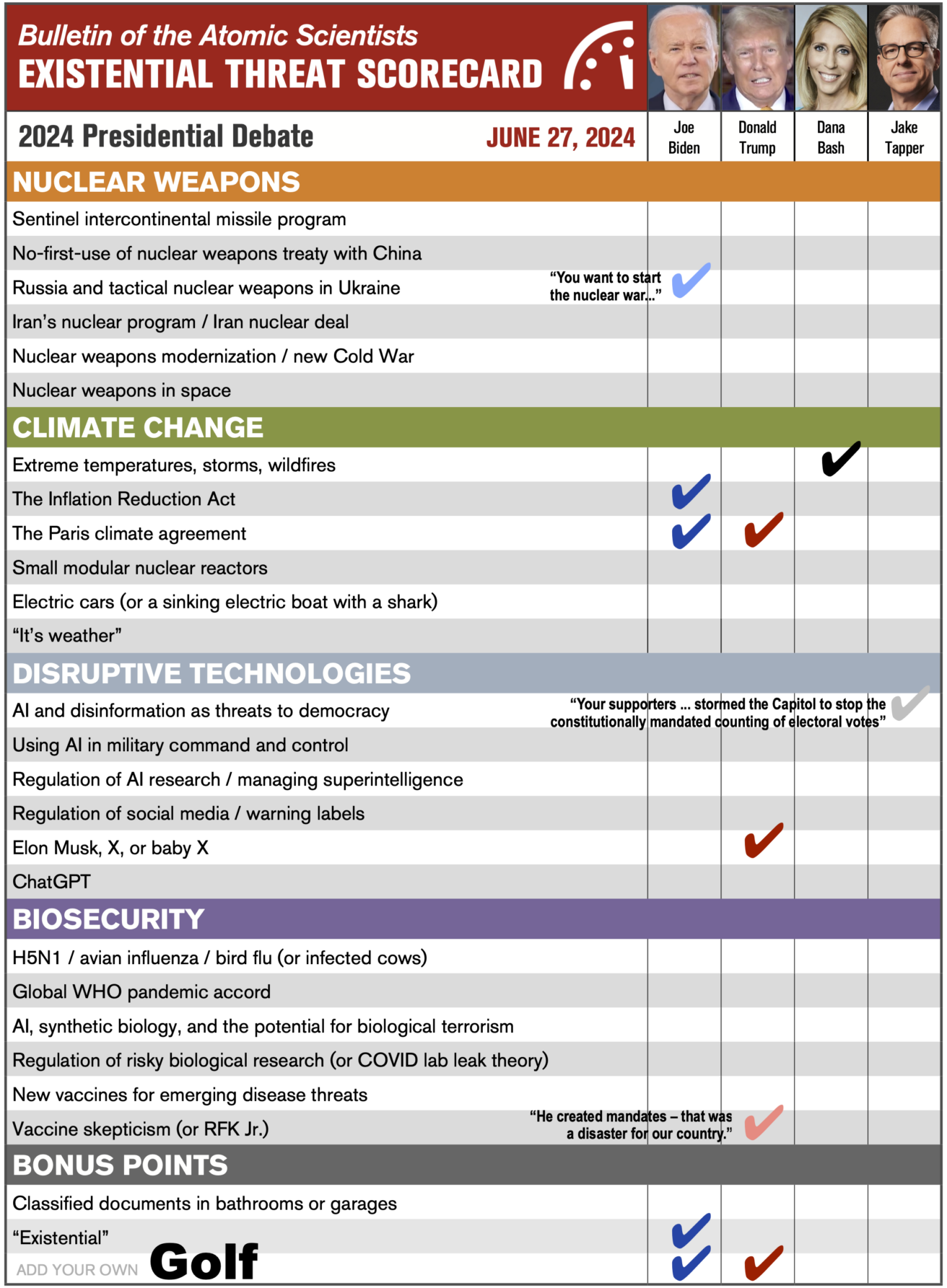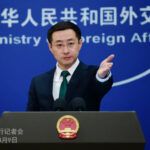No debate: On existential threats, Biden, Trump, and CNN all largely failed
By John Mecklin, Thomas Gaulkin | June 28, 2024

In the wake of Thursday’s presidential debate, many news headlines focused on President Biden’s performance—which the New York Times called “shaky” and “halting”—and former President Trump’s penchant for falsehood and vitriol. In general, the outright panic in many Democratic circles over Biden’s aged demeanor overwhelmed reporting on any public policy matters “addressed” in the debate. And discussion of existential threats was thin, when it existed at all.
The primary story to emerge was simple and one-dimensional: Should Biden leave the presidential race?
(As presidential surrogates tried to spin Biden’s debate debacle into something less disastrous than many viewers saw, even normally supportive outlets and commentators gave grim assessments of his performance. “He seemed a bit disoriented. He did get stronger as the debate went on. But by that time, I think the panic had set in,” longtime Democratic political operative David Axelrod said on CNN, adding that “there are going to be discussions about whether he should continue.” Mark Leibovich, a staff writer at The Atlantic and a longtime political reporter, provided a quality description of the Biden pratfall in his call for the president to end his reelection campaign. A sample from his piece, which is worth reading in full: “Panic seemed to set in among Democrats within minutes of the candidates taking the stage—on social media, at shell-shocked ‘watch parties.’ Full freak-out mode was achieved by the 20-minute mark. Biden’s voice kept trailing off, and he kept getting lost in his train of thought. Donald Trump was sneering and lying. He said a bunch of stuff that made no sense—about club championships, cognitive tests, the whole farce of it. It didn’t matter. The only thing that mattered in this debate was Biden: his hushed and halting voice. His befuddled resting face. He looked like he wanted to be in bed. Or maybe every Democrat in America was just projecting.”)
The Bulletin, of course, is focused far less on politics than on substance and, particularly, on substantive efforts to reduce the global threats that could, if not properly managed, cripple or even end human civilization. On Thursday evening, discussion of these threats—nuclear war, climate change, and a variety of disruptive technologies ranging from synthetic biology to artificial intelligence—was minimal to nonexistent.
The HEATED newsletter gave a good summary of the perfunctory way in which climate change was addressed. There was one climate question: Moderator Dana Bash mentioned “intensifying wildfires, stronger hurricanes, and rising sea levels” before asking Trump, “Will you take any action as president to slow the climate crisis.” Trump dodged the question, and when Bash re-asked it, the former president made the false claim that his administration had “the best environmental numbers ever.” Subsequently, Biden mentioned the Inflation Reduction Act, a signature achievement of his administration that is perhaps the most significant climate change legislation in US history, but without providing explanation or details. He noted that his administration had rejoined the 2015 Paris Agreement on climate change after Trump had pulled the country out of the accord. “The only existential threat to humanity is climate change,” said Biden. “And [Trump] didn’t do a damn thing about it. He wants to undo all that I have done.”
Trump then told a lie about the supposed cost of the Paris Agreement.
The only mention of nuclear weapons in the debate came in response to a question put to Biden about Israel and Gaza; in his rebuttal to Biden’s answer, Trump turned the discussion to Ukraine, claiming that the Secretary General of NATO said Trump “did the most incredible job I’ve ever seen” in getting European countries to increase their defense spending. After pointing out that Trump has in the past suggested the United States might leave NATO, Biden contended that Trump’s assertion that the United States was spending too much money on support for Ukraine could embolden Russian President Vladimir Putin, with disastrous results. “What happens if in fact you have Putin continue to go into NATO? We have an Article Five agreement, [an] attack on one is attack on all. You want to start the nuclear war he keeps talking about? Go ahead,” Biden said. “Let Putin go in and control Ukraine and then move on to Poland and other places. See what happens then.”
Biden and Trump engaged in some back-and-forth argument about who had better handled responses to the COVID-19 pandemic but did not engage in substantive discussion of pandemic preparedness, regulation of risky biological research, or other pressing biosecurity concerns. Oddly, given its prevalence in media headlines, artificial intelligence went unmentioned. In fact, in this debate, two men who have been president of the United States engaged in as much or more conversation about their alleged golfing abilities than they conducted in regard to major global threats included on our debate scorecard, which we have marked below with our assessment, for your reading (dis)pleasure.
Together, we make the world safer.
The Bulletin elevates expert voices above the noise. But as an independent nonprofit organization, our operations depend on the support of readers like you. Help us continue to deliver quality journalism that holds leaders accountable. Your support of our work at any level is important. In return, we promise our coverage will be understandable, influential, vigilant, solution-oriented, and fair-minded. Together we can make a difference.
















